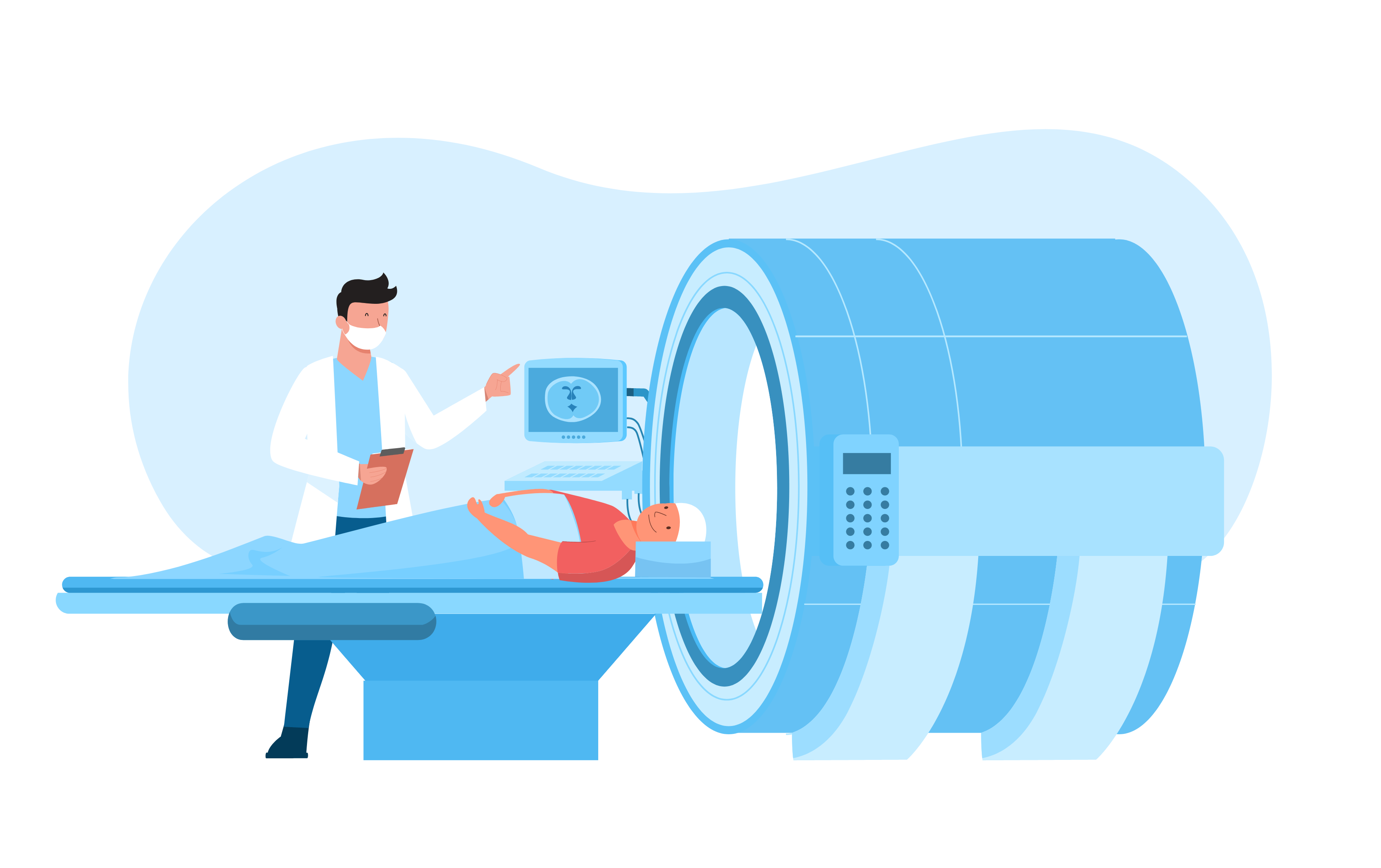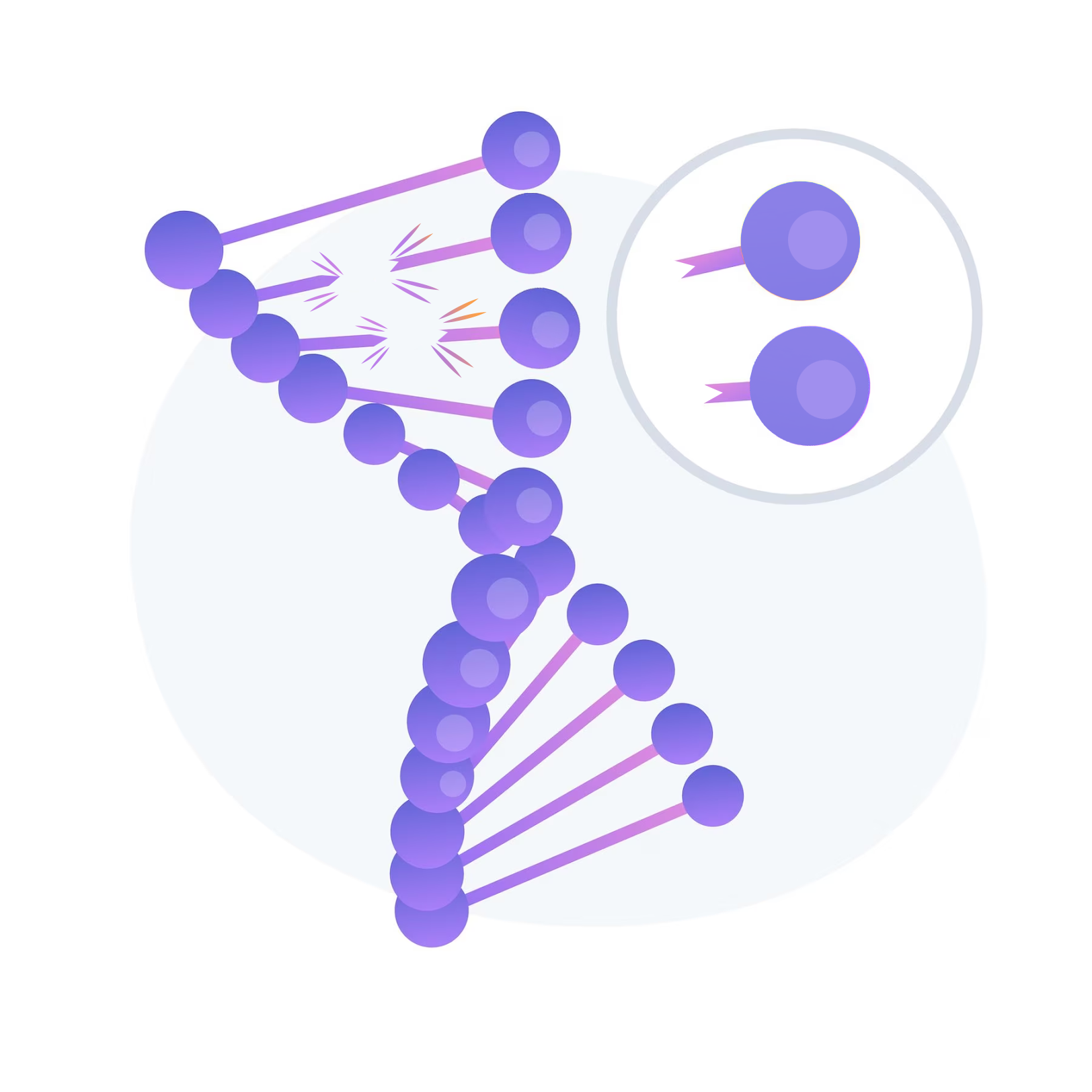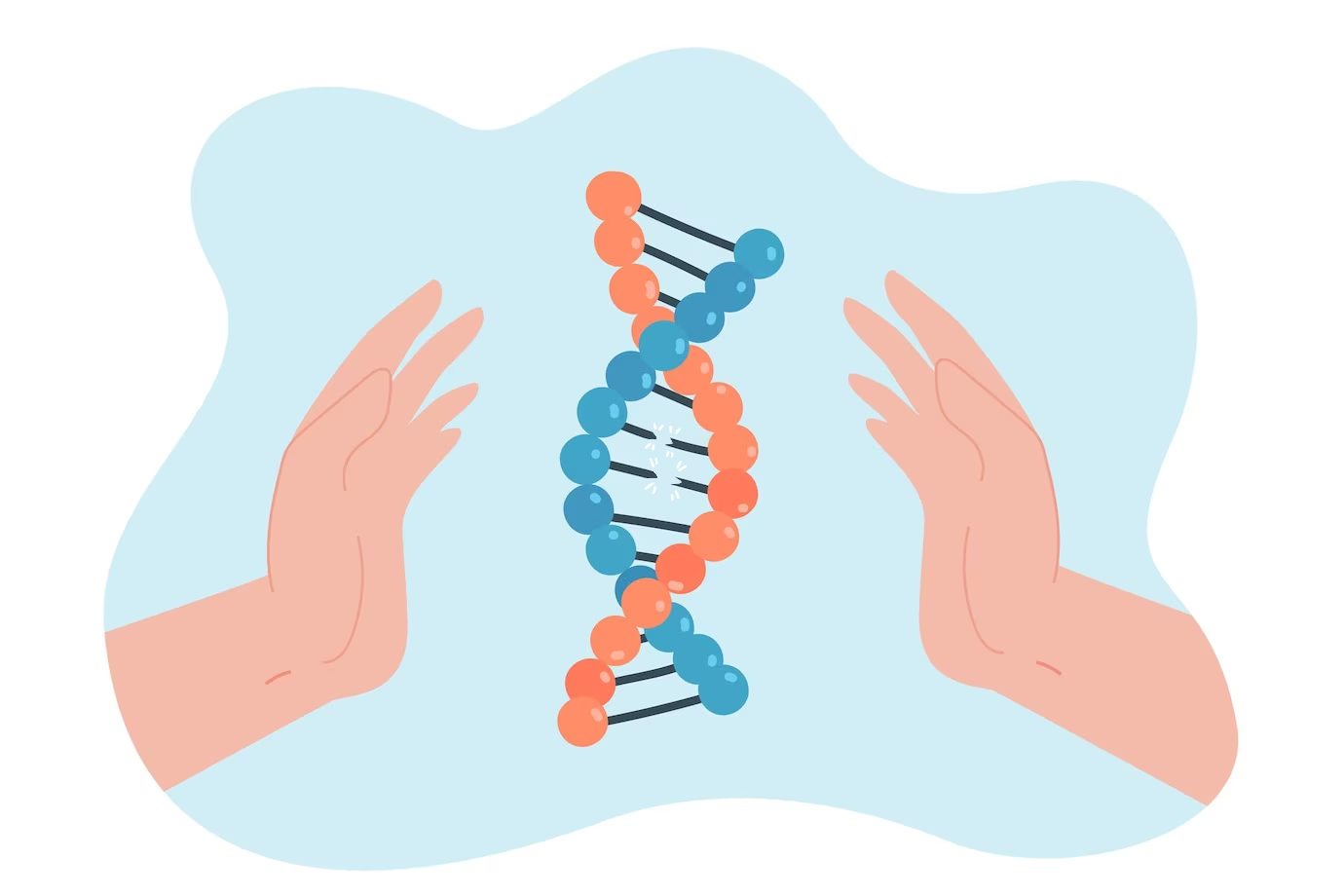
CT Scans: An Important Medical Innovation
A CT scan exposes one to low doses of ionizing radiation.
The result is radiation-induced genomic damage and instability, or “RIGDI” — a key precursor to carcinogenesis. RIGDI has been found to be a key precursor to carcinogenesis. CT Scans have revolutionized doctors’ ability to quickly and accurately diagnose a variety of diseases and disorders. They are a vital part of modern medicine. However, a CT scan requires a higher dose of radiation than most any other diagnostic medical procedure in use today. Before Amiguard CT™ (amifostine), there has not been any way to protect patients from this low-dose ionizing radiation.
However, radiation exposure can cause long-term harm
Even the smallest amount of radiation exposure can initiate genomic instability and genomic damage, or “RIGDI”. Damaged or unstable cells left unrepaired or repaired incorrectly can lead to mutations in abnormal cells, which may become cancerous or lead to other serious medical conditions.
The damage from radiation is cumulative. Doses given months or even years apart add to total radiation exposure and health risk. Research has shown that total radiation exposure from as few as two CT scans (100 millisieverts) can deliver a cumulative radiation dose that increases the lifetime attributable risk (LAR) of cancer by 1%, and an increased risk of dying from cancer by 0.5%.


A genomic stabilizing agent
AmiGuard CT™ – taken before or after a CT Scan – acts as a genomic stabilizing agent to prevent RIGDI. AmiGuard CT™ invokes a robust antioxidant response that prevents DNA damage and helps damaged cells repair more accurately.
AmiGuard CT™ Protects and Repairs
F3 research validates the safety and efficacy of AmiGuard CT™ for the protection and repair of human cells exposed to low-dose ionizing radiation. Our research concludes that substantial protection can be achieved at 80-90% of the current FDA-approved dose of amifostine.

